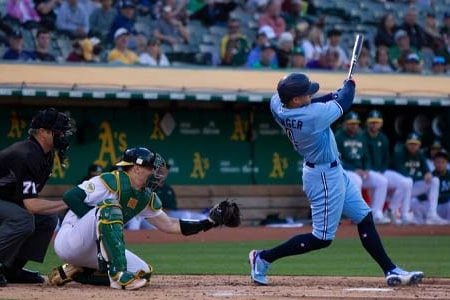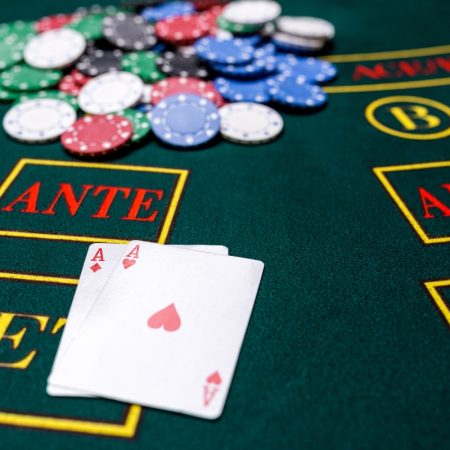The Toronto Blue Jays have recorded 44 comeback wins this season — the most in the MLB so far. Momentum like that shapes everything: playoff positioning, team morale — and even the lines at an authorized MLB online sportsbook. Rivalries are reignited; unlikely heroes emerge; some teams look every bit like comeback kings. Fans are seeing more late-inning heroics, clutch pitching, and dramatic wins than many expected entering 2025.
You’ll analyze what rivalries are escalating, who else outside the norm is rising to the occasion, which teams are performing more comebacks than the next, and what all this might imply as October approaches. There are calculations, comparisons, and forecasts. Moreover, you’ll get applicable results regarding when the match evolves and the focus heightens.
What follows is, in the first place, to plunge into the main takeaways along with the analytics and the analytics themselves; second, to provide context through analogies; next, the implications of these for the audience, or anyone interested in the MLB; and last, the prospective summary of what to come in these narratives. Let’s begin.
Rivalries Reignited & What They Tell Us
Several of the historical rivalries this season have transcended mere presence to having an impact on outcomes and playoff races. Consider the Brewers and the Cubs in the NL Central. Milwaukee leads the division and boasts an exceptional record. Their continued dominance of the Cub in strategic matches has sorely vexed the latter. With Counsell taking the Cubs for Milwaukee and the palpable tension, the conflict has moved far beyond the realm of fans to impact the organisational decision patterns for relievers, pitching rotation configurations, and even rest intervals.
Another rivalry heating: Yankees vs. Red Sox. The Red Sox won five straight vs. the Yankees, at one point narrowing a 7-game deficit in the AL East. That kind of swing shows how rivalry games aren’t just emotional. They impact playoff morale and morale on both sides.
Finally, Dodgers vs. Padres and Astros vs. Rangers are more than just regional rivalries. They are the top conflicts of the NL West and AL West, respectively. Each game between them now carries stakes: the division lead, momentum, even the playoff seeding. Staff, offense, and depth are also being tested.
The rivalries stream fueling margins of error that are continuously and shrinking excitement that teams and fans alike are. For that reason, the stakes associated with rivalry games are disproportionate to the rest of the season. They easily shape performance projections, rest and bullpen strategy sides of the schedule, and rest integration and bushels.
Unlikely Heroes & Comeback Kings
This season has certainly been shaped by the “unlikely heroes” trend. Seattle’s Leo Rivas sent a 13th-inning walk-off to the Cardinals to complete a three-game sweep while Astros rookie Zach Cole debuted with a homer on his first pitch and 4 RBIs. These “unlikley heroes” are making a difference in rivalry games with swift momentum changes.
On the other hand, several teams are marked by resilience in comebacks. The Blue Jays, with 44 comeback wins, are first in the MLB with the Dodgers and Mariners closely behind with 43 and 42, respectively. These are not simply one-run ninth-inning salvages. These comebacks are late-game, three-plus-run recoveries umpired by strong bullpens and bench depth. For fans, this connects directly to how teams are viewed in baseball underdog betting, since resilience and momentum often shift odds in unexpected ways.
Rivalries create high-pressure spots, producing more chances for role players to shine. Comeback kings build reputations that force opponents to play differently. Together, these storylines are driving momentum in the playoff race.
How Fans Can Use These Trends
Identifying the specific rivalries that are gaining renewed fervor or underdog players that are ascending provides more for discussion of game strategy and presentation toward players and team dynamics.
Analyzing the momentum in rivalry series: Winning a pivotal game against a rival tends to bolster a team’s confidence going into the ensuing series. Identify those wins that follow a loss to a rival. Those bounce-back wins might be a signal of latent strength or, conversely, more serious issues.
Watching the role players and depth arms: It’s the bench players or the bullpen that usually becomes the difference maker when the attack is feeble or the starters are being stifled. The unlikely heroes, such as Cole or Rivas, take on greater character in close contests and rivalry games.
Assessing teams characterized by a large number of comeback wins (Blue Jays, Dodgers, and Mariners), it is reasonable to expect that, even down in a game, the proverbial fight in them continues to exist. This is not of interest only to casual fans but to anyone trying to explain the reasons behind the endings of games, and where mindset and strategy come into play.
“Roster management and the impact of injuries: the loss of each starter or a reliever in tightly contested rivalry series increases the liability, and, conversely, the ability to restore health (eg, rehab starts) can shift the balance in the final stretch.”
These examples of application, I believe, assist in elevating the level of understanding a fan has while following the MLB. They can determine the games that hold the most value, the games which certain players’ performances are viewed as “outliers”, and how teams utilize their organizational “depth.”
What the Rest of the Season Could Bring
The Brewers are nearly guaranteed to win the NL Central unless some injury-related major collapse occurs.
The AL West is still a tight race (Astros, Mariners, Rangers), with bullpen arms and overall roster health being the key differentiators.
Most unlikely heroes, particularly bench players and late-season call-ups, will emerge in rivalry and playoff-impacting games.
Toronto, L.A., and Seattle are comeback teams proving able to build psychological momentum over their opponents.
Rivalry games (Yankees-Red Sox, Dodgers-Padres, Astros-Rangers) will shift playoff seeding and affect playoff momentum.
Fans should analyze: advanced rivalry late win records, bullpen ERA, and role players’ OPS for a better understanding.
Key Takeaways from Analysts
Here are real-world tips and insights to keep in mind, drawn from what’s happening now:
- Rivalry games mean more — track how players and bullpens perform against rivals, as disputes increase.
- Support players help — close games are often decided by bench depth and call-ups.
- The record of comebacks is indicative of resilience — teams with a high number of comeback wins tend to remain competitive late in games.
- Rivalry game pitching is different — rest and anxiety change how starters and bullpens perform; consult history of matchups.
- In the end, health and depth are decisive — weaknesses are exposed by injuries, so monitor rotations and the rest of the bullpen, monitor rehab workloads.
- Momentum defenders from the bench change direction in response to the big win — streaks can be fueled by comebacks, so observe the immediate actions of other teams after such games.
Frequently Asked Questions
Q: What defines a baseball rivalry in 2025?
A: A rivalry is more than geography or history — it’s when teams consistently battle for division standings or playoff spots, when fan engagement and tension in games increase. Rivalries like Yankees-Red Sox, Dodgers-Padres, Brewers-Cubs are examples because their matchups often carry real consequences.
Q: Who qualifies as an “unlikely hero” in MLB vernacular?
A: Someone not expected — a rookie, or a bench player — whose performance has outsized impact in key games. Examples: rookies making immediate impact; someone recalled late in season putting up walk-offs or clutch hitting. Like Zach Cole or Leo Rivas.
Q: How Pitcher Handedness Shapes Baseball Sportsbook Odds
A: Left or right handed pitchers matter because of matchup data: batting splits (how well hitters perform vs left/right), platoon advantages, and bullpen handed-balance. If a team stacks lefty hitters and faces a righty, that can tilt a line. In rivalry games, where stats count more, oddsmakers often adjust baseball sportsbook odds based on handedness for starters and relievers.
Q: Can comeback wins indicate playoff success?
A: They are not guarantees, but a high volume of come-from-behind victories suggests mental toughness, depth, and bullpen strength. These are traits that help in postseason play. Teams like Blue Jays, Dodgers, Mariners showing this may carry those habits forward.
Q: Do rivalry games affect player fatigue or injury risk?
A: Yes. Rivalry games often include more intensity, more emotional stress, more high leverage pitches and swings. That can exacerbate fatigue. Managers often need to balance urgency with rest — especially for starting pitchers and bullpen depth.
Q: How should fans or analysts interpret “unreal” stats vs sustainable ones?
A: Very carefully. A hot stretch might be media noise unless supported by fundamentals: plate discipline, quality of contact, bullpen used effectively. Look for repeatable metrics, not just blast homers or a walk-off here and there.
Q: When do comeback kings start to lose their advantage?
A: When fatigue, injury, or lack of depth hits. Also if teams become predictable (over-reliance on bullpen, or offense sputters). As games get tighter down the stretch, and starters are taxed, comeback ability can diminish. Monitoring roster health is key.
Q: Is there risk in overvaluing rivalry games when following MLB storylines?
A: Yes. At times, rivalry hype can inflate expectations. A team may lose focus afterward, or games may not live up to the tension. It’s useful to use rivalry as context, but also to see underlying metrics — starting pitching, bullpen health, hitting, etc.
What to Do Next
Rivalries are back with a punch. Unlikely heroes are no longer occasional surprises. And comeback kings are showing up in the standings. Those three trends define where MLB stands now. The Blue Jays’ 44 comeback wins, the rookies making headlines, the tight divisional battles — they all matter for fans, analysts, and especially those using an authorized online MLB sportsbook.
What you want going forward: pay attention to depth — bench, bullpen, pitcher health. Watch rivalry matchups for shifts in momentum. Don’t sleep on role players — they may decide division races. Expect more dramatic comebacks, more late-inning pressure, more story arcs outside of just the stars.
If you want to stay ahead: check upcoming rivalry series, track recent comeback stats, note injury reports, monitor deeper stats (bullpen ERA, splits vs. handedness). Keep focused, and BetOnline.ag is a place to see odds reflect what we’re talking about — where storylines become numbers. Make the story yours.












